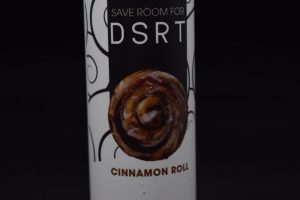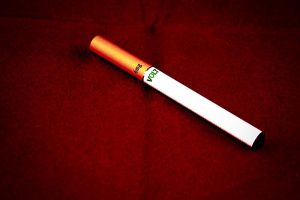FDA to Ban Flavored E-Cigarettes in Convenience Stores and Gas Stations
The Food and Drug Administration recently announced plans to ban the sale of most flavored electronic cigarettes in traditional physical locations like convenience stores and gas stations, in an effort to prevent a new generation of nicotine addicts.
 Last Thursday, the FDA and the U.S. Centers for Disease Control and Prevention released data which showed a 78 percent increase in the number of high school students who reported using e-cigarettes at least once in the last 30 days, compared to the previous year. We’ve already talked about how the fact that someone used something one time doesn’t make them addicted or even a regular user, but even if that were true, we also know that high-school students don’t have an e-cigarette problem, but a JUUL problem. That’s just one e-cigarette brand that happens to be using a specially-formulated nicotine salts solution that is absorbed much more rapidly into the bloodstream, similar to the nicotine from tobacco cigarettes. There’s a reason why, in some US high-schools “Juuling” has become synonymous with vaping, even though many highschoolers have never even seen another vaping device.
Last Thursday, the FDA and the U.S. Centers for Disease Control and Prevention released data which showed a 78 percent increase in the number of high school students who reported using e-cigarettes at least once in the last 30 days, compared to the previous year. We’ve already talked about how the fact that someone used something one time doesn’t make them addicted or even a regular user, but even if that were true, we also know that high-school students don’t have an e-cigarette problem, but a JUUL problem. That’s just one e-cigarette brand that happens to be using a specially-formulated nicotine salts solution that is absorbed much more rapidly into the bloodstream, similar to the nicotine from tobacco cigarettes. There’s a reason why, in some US high-schools “Juuling” has become synonymous with vaping, even though many highschoolers have never even seen another vaping device.
What’s even stranger is that JUUL had already announced that it would voluntarily stop selling flavored products in convenience stores and gas stations, in an effort to prevent teenagers from becoming addicted to nicotine. Their announcement came in September, so why is the FDA still going ahead with the ban if the company that had caused the “JUUL epidemic” in the first place was taking significant steps to address it?
And finally, what about the ex-smokers who will most likely go back to smoking tobacco cigarettes because they can’t find the vaping products that helped them cope with their nicotine addiction? Interestingly, data shows that these “juvenile” flavors actually appeal to adults as well, myself included. Sadly, the CDC will most likely not include them in any survey.
This isn’t the end of the world for us die-hard vapers. Flavored e-liquids and electronic cigarettes will still be available in vape shops, and other stores that have an adult-only area, as well as online, through websites that have age verification systems, but the impact on casual vapers will be significant. The vast majority of e-cigarette users buy their devices from convenience stores and gas stations, and taking these products off the shelves will probably do more harm than good from a public health perspective.
But the FDA doesn’t seem to care too much about public health in general, choosing to focus only on preventing a “new generation of nicotine addicts”. That sounds commendable, but it’s their methods that are questionable. For example, why aren’t they taking the same steps with flavored alcoholic drinks? Or since the sale of tobacco products to minors is prohibited by law, why aren’t they taking steps to make sure that the law is properly enforced?
Finally, if the FDA is concerned with youth becoming addicted to nicotine, why not ban the sale of tobacco cigarettes in convenience stores as well? They are the ones that kill millions of people every years and get millions of others addicted to nicotine, and e-cigarettes only exist as a less dangerous alternative for people looking to quit and sustain their nicotine addiction. Sure, the FDA also announced plans to ban menthol cigarettes in physical locations, but judging from the lobbying power of tobacco giants, I personally don’t see it happening anytime soon.
Advocacy groups are calling the FDA’s upcoming ban of flavored e-cigarettes a win for public health, but that’s only because they worked very hard to make vaping seem like a threat in the first place, instead of supporting it as a potentially life-saving alternative to smoking. Or did we all somehow forget that it’s not the nicotine but the carbon monoxide and tar from tobacco smoke, not the nicotine, that kills smokers.
















